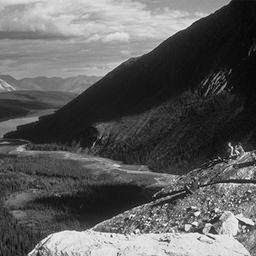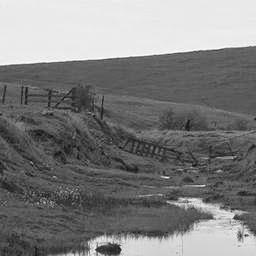先に考察したCoatesの方法について、クラスタリングの数 $K$ を変えた結果を示す。その他のパラメータは先と同じである。
テスト画像は100枚である。
1. MITforest/MITmountainの組
| $K$ |
accuracy |
accuracy(Hellinger Kernel) |
| 1000 |
81%(81/100) |
86%(86/100) |
| 1500 |
86%(86/100) |
86%(86/100) |
| 2000 |
69%(69/100) |
88%(88/100) |
2. industrial/CALsuburbの組
| $K$ |
accuracy |
accuracy(Hellinger Kernel) |
| 1000 |
88%(88/100) |
97%(97/100) |
| 1500 |
88%(88/100) |
97%(97/100) |
| 2000 |
97%(97/100) |
98%(98/100) |
3. MITmountain/MITopencountryの組
| $K$ |
accuracy |
accuracy(Hellinger Kernel) |
| 1000 |
75%(75/100) |
83%(83/100) |
| 1500 |
64%(64/100) |
87%(87/100) |
| 2000 |
87%(87/100) |
81%(81/100) |
4. 考察
- 最後の組の $K=2000$ の場合を除けば、Hellinger Kernelを使用したときの識別率は、それを使用しないときより低くなることはない。
- 最後の組の $K=2000$ の場合を除けば、Hellinger Kernelを使用したときの識別率は、$K$ が大きい程高くなる。
- ただし、Hellinger Kernelを使わない場合も考慮に入れると、$K$ の増加がそのまま識別率の向上につながるわけではないことが分る。
今回使用した識別器は以下の2種類である。
- 線形SVM
- Homogeneous Kernel Mapという手法により導入したHellinger Kernel
5. テスト画像の例
以下に各カテゴリのテスト画像の例を示す。
〜 MITforest 〜
〜 MITmountain 〜
〜 industrial 〜
〜 CALsuburb 〜
〜 MITopencountry 〜










0 件のコメント:
コメントを投稿